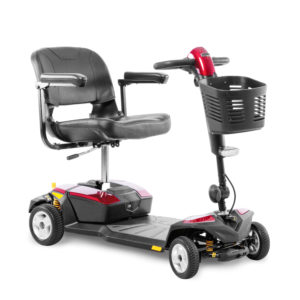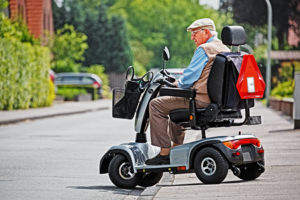Scooters and Micromobility
 Micromobility is a term used to define types of vehicles that are small and generally designed for short, everyday journeys. It typically covers a wide variety of scooters and cycles, but also includes skateboards, segways and even hoverboards! The types of vehicles available and number of sales is growing rapidly in the UK, plus there are schemes for shared use of some vehicle types in cities, such as e-bikes and micro-scooters.
Micromobility is a term used to define types of vehicles that are small and generally designed for short, everyday journeys. It typically covers a wide variety of scooters and cycles, but also includes skateboards, segways and even hoverboards! The types of vehicles available and number of sales is growing rapidly in the UK, plus there are schemes for shared use of some vehicle types in cities, such as e-bikes and micro-scooters.
Micromobility has the potential to make transport more inclusive and enable people to get out and about into their local community. Scooters provide a transport option for people who can travel alone and are able to get on and off the vehicle by themselves.
Here we explore the types of scooter currently available.
Types of scooters
Light weight scooters
Light weight scooters are made with a light frame and can be more easily transported about, either by coming apart into a number of pieces or by folding. This makes it possible to put them into a car, depending on the size of the car, if your carer can lift it.
Pavement scooters
These scooters are more sturdy and can carry more weight. They have a longer battery life allowing you to go out from your home to visit local friends and amenities.
Road-legal scooters
 Road-legal scooters are larger and are capable of being driven on the road as well as the pavement. This means they are classified as 'Class 3' products and must be registered with the DVLA if you will be using it on a road. The dealer will do this for you. They are a sturdy construction that are more comfortable over bumps on the road and can be driven for longer distances. Due to their size they require more space for storage and must be kept in a secure area.
Road-legal scooters are larger and are capable of being driven on the road as well as the pavement. This means they are classified as 'Class 3' products and must be registered with the DVLA if you will be using it on a road. The dealer will do this for you. They are a sturdy construction that are more comfortable over bumps on the road and can be driven for longer distances. Due to their size they require more space for storage and must be kept in a secure area.
There is a set of specific features that a Class 3 vehicle must have to be used on a road. Check these details on the Gov.uk website.
You do not need to pay vehicle tax for a Class 3 scooter. In addition it is not mandatory to have insurance, although insurance is recommended.
More information on scooters
Visit the Motability website to see more details on the types of scooters available and how to arrange a test.
Rules for driving scooters
There are rules for driving scooters in the UK covering where they can be driven and parked, who is eligible to use them and whether the vehicle need to be registered or not.
Visit the Gov.uk website to see the rules applicable to all classes of scooter
Scooter hire in city or town centres, and at tourist attractions
Some city and town centres offer various types of scooters and wheelchairs for hire to enable people with mobility issues to visit.
Shopmobility Centres - These may be available in your area and signposted on your area council website. The hire of the vehicle may be done through a charity or a private company.
Here's an example signposted on the Cheshire West and Cheshire council website:
Cheshire West and Chester Shopmobility
Alternatively you can visit the Shopmobility UK website and find your closest hire centre.
Private companies - They are not always signposted through the council so you may need to search online and book in advance.
Here's an example for Edinburgh city centre:
Mobility Scooter Hire Edinburgh
Tourist attractions - Some National Trust and English Heritage sites have mobility scooters for hire which you can pre-book. You will need to check for this option at the site you are planning to visit before going there.
Contact us
If you would like more information or help and guidance on scooters and finding the best solution for you, contact the Trust on 01480 474074 or email.
